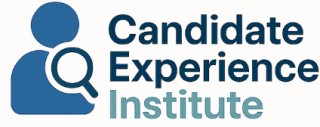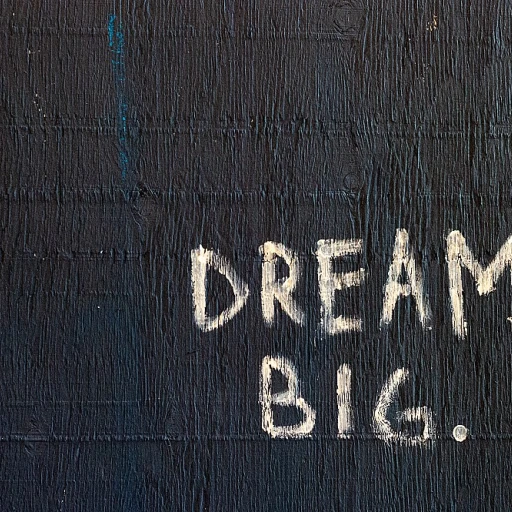Understanding the Importance of Candidate Experience
The Significance of a Positive Candidate Journey
Understanding the candidate experience is crucial for employers striving to attract top-tier talent. A thoughtfully curated candidate journey can significantly impact how potential employees perceive your company. This perception is critical as these candidates could become valuable assets to your team in the future. Ensuring candidates have a positive experience can enhance your brand reputation and make your company more appealing in the competitive job market. It's not just about the role or position you're offering; it's about creating an inclusive, respectful, and engaging interaction throughout the interview process.First Impressions Matter
The way you conduct your job interviews can speak volumes about your company culture. Candidates often judge the efficiency of the hiring process as a reflection of the organization itself. Unclear or disorganized approaches may discourage them from proceeding or accepting an offer if extended. Candidates are more likely to feel valued and inclined to accept your offer when the process is structured and transparent. Moreover, a well-established interview process can also help hiring managers assess candidates more effectively. By designing targeted interview questions that align with the company’s values and the specific requirements of the job, both the interviewer and job seekers can have clearer expectations.Influencing Future Recommendations
Candidates who undergo a well-structured, respectful interview process are more likely to advocate to others about their experience. Whether or not they receive a job offer, their feedback can influence the perception of future candidates and the market at large. Creating a commendable candidate experience doesn’t stop at the interview itself. Follow-up and feedback play a vital role in keeping the interaction positive. Ensuring candidates receive constructive feedback and know where they stand in the hiring process will help reinforce a respectful company culture. Candidates who feel heard and valued during interviews are likely to become strong proponents of your company, even if they eventually don’t join the team. For more insights on the role of pre-screening interviews in this process, consider reading about the impact of pre-screening interviews here. In conclusion, successful interviews are more than just a Q&A session. They are a vital avenue to conveying your company's culture and establishing a respectful relationship with potential hires.Crafting Questions that Reflect Company Culture
Aligning Interview Questions with Company Values
Crafting the right interview questions is crucial, especially when it comes to understanding how well a candidate will fit into your company culture. These questions should aim to unearth whether a potential hire shares the same values and mission as the company itself. This is not just about finding someone who can do the job, but finding someone who fits into the team's dynamic and contributes positively to the work environment.- Reflecting Core Values: Consider questions that directly relate to your company's mission and values. For example, if your company prides itself on innovation, you might ask candidates to "describe a time when they had to solve a problem in a creative way." This not only assesses their problem-solving skills but also how they approach innovation.
- Understanding Motivations: Ask questions that help understand the candidate’s motivation and what drives them. This can provide insights into whether their personal goals align with those of the company. An example question could be, "What aspect of your work do you find most engaging?" Their answer will help gauge their enthusiasm and long-term potential with your team.
- Cultural Compatibility: To assess if a candidate is a good cultural fit, you might ask, "Can you give an example of a time when you had to adapt to a difficult team?" This can reveal their flexibility, social skills, and compatibility with your team's dynamics.
- Scenario-Based Inquiries: To better understand a candidate's alignment with company culture, scenario-based questions can be helpful. For instance, "How do you manage conflict within a team when there is a disagreement on how a project should proceed?" Such questions test their communication skills and ability to work in a team environment.
Behavioral Questions to Assess Soft Skills
Assessing Soft Skills with Targeted Behavioral Questions
The interview process is a critical stage for evaluating a candidate's ability to fit into the company culture and work effectively within the team. Focusing on behavioral questions allows hiring managers to get a sense of a candidate's soft skills, which are essential for most positions. Behavioral questions are designed to uncover how candidates have handled situations in the past, which often predicts their future performance. For example, by asking a candidate to "describe a time when you had to resolve a conflict in a team," you can evaluate their problem-solving and communication skills, which are crucial for a successful role in any company. These questions help interviewers understand a candidate's ability to navigate common work challenges and adapt to the dynamic nature of any role. Behavioral interview questions can also reflect aspects of the company's values, such as prioritizing collaboration or innovation. It is vital that the questions posed draw out real-life scenarios. For instance, "Tell me about a situation where you demonstrated leadership skills," encourages candidates to provide specific examples. Such questions not only give insight into the candidate's past job experiences but also help determine their potential culture fit. By utilizing well-crafted behavioral questions during the interview, hiring managers can discern candidates' soft skills more effectively. This approach will help in selecting those who are not only qualified but also aligned with the company’s environment and values. For more insights on how feedback can enhance the interview process, explore how enhancing candidate experience through effective feedback can be achieved.Technical Questions for Role-Specific Assessment
Assessing Role-Specific Skills Through Technical Questions
When it comes to a job interview, asking the right technical questions is crucial for evaluating a candidate’s ability to perform specific tasks associated with the position. These questions help the hiring manager assess the technical proficiency required for the role and determine whether the candidate's skills align with the company’s needs.
Technical questions can vary widely depending on the job and industry, but there are common interview categories to consider:
- Programming and Software Development: For candidates applying to software-related roles, you might ask about technical problems or coding practices. For example, “Describe a time when you had to solve a complex coding issue and the steps you took to address it.” This question helps probe problem-solving skills and understanding of software complexities.
- Industry-Specific Knowledge: Tailor questions to the specific sector. For example, "What are the latest trends in [industry] that you think will impact the role?” This encourages candidates to demonstrate their industry knowledge and foresight.
- Problem Solving: Questions like "How do you approach tackling a technical problem?” will allow the candidate to articulate their problem-solving methodology and showcase their technical capabilities.
- Tool Proficiency: Investigate a candidate’s experience with tools relevant to the job. Ask, “Can you provide an example of a time when you successfully used [tool/software] to achieve a project goal?”
It’s vital to remember that while technical questions help uncover a candidate's hard skills, they can complement the insights gained from behavioral and open-ended questions that reflect company culture and assess soft skills. A balanced interview process, covering these aspects, ensures the most comprehensive evaluation of candidates for a role.
Open-Ended Questions to Encourage Insightful Responses
Encouraging Candidates to Share Insightful Responses
During a job interview, employing open-ended questions can effectively lead candidates to provide comprehensive insights and showcase their skills. These types of questions help uncover candidates' thought processes and allow them to describe time they have had previous experiences that are relevant to the new role. For example, rather than asking yes-or-no questions, consider questions that prompt a candidate to elaborate on past experiences or how they might approach future scenarios. This will help the hiring manager gain a deeper understanding of the candidate's potential fit within the team and the company culture. Sample Open-Ended Interview Questions:- "Can you describe a time when you faced a challenge at work and how you overcame it?"
- "What strategies have you used to ensure effective communication among team members?"
- "How do you approach problem solving when faced with a complex issue?"
Feedback and Follow-Up: Enhancing the Interview Process
Providing Constructive Feedback and Maintaining Engagement
After conducting an interview, it is crucial to provide candidates with feedback regardless of the outcome. Feedback not only respects the candidate's investment of time but also enhances the interview process by offering insights into the company's culture and communication skills. Constructive feedback will help candidates understand their strengths and areas for improvement, ensuring a positive perception of the company even if the candidate is not selected for the position. When giving feedback, aim to:- Be Prompt: Share feedback as soon as possible post-interview. This shows respect for the candidate's time and maintains their engagement with potential future opportunities within the company.
- Focus on Positives and Areas for Improvement: Highlight the soft skills and technical capabilities where the candidate excelled. Mention specific examples from their interview answers and describe times when their responses aligned well with the company's needs. Similarly, tactfully address areas where they may need improvement.
- Encourage Further Communication: Keep the door open for any follow-up questions candidates might have about their interview performance. This approach boosts transparency and demonstrates a commitment to the candidate's growth, aligning with company culture that values constructive dialogue.
- Be Honest but Respectful: While honesty is essential, ensure your feedback is delivered in a manner that maintains the candidate's dignity and exhibits empathy.











